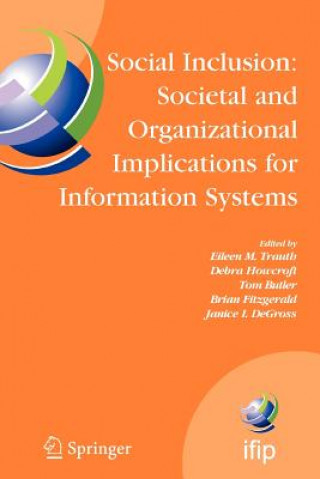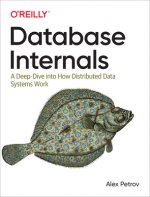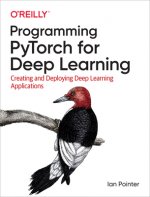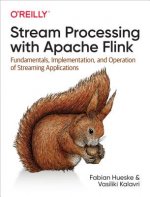
Kód: 01422692
Social Inclusion: Societal and Organizational Implications for Information Systems
Autor Eileen Trauth, Debra Howcroft, Tom Butler, Brian Fitzgerald
Changes in society resulting from the pervasiveness of information technology have produced positive and negative, intended and unintended consequences. Key among them is the exclusion of individuals who lack access to technologic ... celý popis
- Jazyk:
 Angličtina
Angličtina - Väzba: Brožovaná
- Počet strán: 420
Nakladateľ: Springer, Berlin, 2011
- Viac informácií o knihe

139.57 €

Skladom u dodávateľa v malom množstve
Odosielame za 14 - 18 dní
Potrebujete viac kusov?Ak máte záujem o viac kusov, preverte, prosím, najprv dostupnosť titulu na našej zákazníckej podpore.
Pridať medzi želanie
Mohlo by sa vám tiež páčiť
-

Effects of Cross and Self Fertilisation in the Vegetable Kingdom
75.77 € -

Theatre of Suzuki Tadashi
170.29 € -

Transforming Childcare and Listening to Families
15.97 € -

Philosophy of Psychology
65.33 € -

Etapas:: 11 Libro del profesor
13.51 € -

Making Waves, Revised and Expanded
55.70 € -

Echocardiography in Adult Congenital Heart Disease
188.42 € -

Das Prinzip Menschenwurde
105.27 € -

Hauteville House - Reiseziel Tulum
14.33 € -

Erziehung, Bildung, Berufsberatung, Ausbildung und psychische Gesundung
45.56 € -

Tod in Innsbruck
12.89 € -4 % -

Tausenderlei uber die Liebe
20.57 € -

Mercedes-Benz R/C 107
16.58 € -4 % -

Das Gesetz der Anziehung
10.64 € -

Ich schreibe, um herauszufinden, was ich denke
28.87 € -4 % -

Strafgerichtliche Öffentlichkeit und öffentlicher Ankläger in der französischen Aufklärung, mit einem Ausblick auf die Gesetzgebung der Konstituante.
80.18 € -

Strukturwirkungen des Inflationsprozesses.
16.99 € -

Matematika pro netechnické obory SOŠ a SOU 1.díl
8.08 € -9 % -

Schreib richtig! Arbeitsheft 2
14.12 € -

Doktor Faustus
47.61 € -2 % -

Tinto 1 - Grüne JÜL-Ausgabe - 1. Schuljahr
23.54 €
Darčekový poukaz: Radosť zaručená
- Darujte poukaz v ľubovoľnej hodnote, a my sa postaráme o zvyšok.
- Poukaz sa vzťahuje na všetky produkty v našej ponuke.
- Elektronický poukaz si vytlačíte z e-mailu a môžete ho ihneď darovať.
- Platnosť poukazu je 12 mesiacov od dátumu vystavenia.
Viac informácií o knihe Social Inclusion: Societal and Organizational Implications for Information Systems
Nákupom získate 345 bodov
 Anotácia knihy
Anotácia knihy
Changes in society resulting from the pervasiveness of information technology have produced positive and negative, intended and unintended consequences. Key among them is the exclusion of individuals who lack access to technological resources from various societal processes and services. The theme of this book, social inclusion, explores the many dimensions of this exclusion. This issue has been the focus of much debate within the social sciences, yet has largely been underresearched in the Information Systems field, despite our concerns with the social and organizational aspects of technology. To the extent that contemporary debates have identified access to information as a key component of poverty, digital exclusion is seen as the problem. Thus, ICTs are portrayed as either exacerbating exclusion or are presented as the solution for greater inclusion. This conference will provide us with the opportunity to build upon our strong tradition of studying technology design and use in organizations, and expand our field of enquiry to consider the processes that engender social exclusion and the issues that derive from it. §This theme invites consideration of social and organizational constraints that result in the underrepresentation of certain groups and, by implication, certain issues. Likewise, it invites consideration of emerging technologies that have the potential to alter social, political, and economic relations. Much is being written about the ubiquitous nature of ICTs to change society, for example, open source software has recently emerged as a concept with implications far beyond the technology domain. This suggests that the role of ICTs in addressing social exclusion is far more complex than often thought. For this reason it is timely to expand our focus and progress the study of IS beyond the organizational level of analysis so that we may consider wider concerns affecting all citizens.§This book contains the proceedings of the Working Conference on the societal and organizational implications for information systems of social inclusion. This conference, sponsored by the International Federation for Information Processing Working Group 8.2, was held in Limerick, Ireland, July 12-15, 2006.This book presents the proceedings of the Working Conference on the societal and organizational implications for information systems of social inclusion. The contributed papers explore technology design and use in organizations, and consider the processes that engender social exclusion along with the issues that derive from it. The conference, sponsored by the International Federation for Information Processing Working Group 8.2, was held in Limerick, Ireland, in July, 2006.Changes in society resulting from the pervasiveness of information technology have produced positive and negative, intended and unintended consequences. Key among them is the exclusion of individuals who lack access to technological resources from various societal processes and services. The theme of this book, social inclusion, explores the many dimensions of this exclusion. This issue has been the focus of much debate within the social sciences, yet has largely been underresearched in the Information Systems field, despite our concerns with the social and organizational aspects of technology. To the extent that contemporary debates have identified access to information as a key component of poverty, digital exclusion is seen as the problem. Thus, ICTs are portrayed as either exacerbating exclusion or are presented as the solution for greater inclusion. This conference will provide us with the opportunity to build upon our strong tradition of studying technology design and use in organizations, and expand our field of enquiry to consider the processes that engender social exclusion and the issues that derive from it. §This theme invites consideration of social and organizational constraints that result in the underrepresentation of certain groups and, by implication, certain issues. Likewise, it invites consideration of emerging technologies that have the potential to alter social, political, and economic relations. Much is being written about the ubiquitous nature of ICTs to change society, for example, open source software has recently emerged as a concept with implications far beyond the technology domain. This suggests that the role of ICTs in addressing social exclusion is far more complex than often thought. For this reason it is timely to expand our focus and progress the study of IS beyond the organizational level of analysis so that we may consider wider concerns affecting all citizens.§This book contains the proceedings of the Working Conference on the societal and organizational implications for information systems of social inclusion. This conference, sponsored by the International Federation for Information Processing Working Group 8.2, was held in Limerick, Ireland, July 12-15, 2006. §Eileen M. Trauth is at The Pennsylvania State University, USA; Debra Howcroft is at the University of Manchester, UK; Tom Butler is at University College Cork, Ireland; Brian Fitzgerald is at the University of Limerick, Ireland; and Janice I. DeGross is at the University of Minnesota, USA.
 Parametre knihy
Parametre knihy
Zaradenie knihy Knihy po anglicky Computing & information technology Databases
139.57 €
- Celý názov: Social Inclusion: Societal and Organizational Implications for Information Systems
- Podnázov: IFIP TC8 WG 8.2 International Working Conference, July 12-15, 2006, Limerick, Ireland
- Autor: Eileen Trauth, Debra Howcroft, Tom Butler, Brian Fitzgerald
- Jazyk:
 Angličtina
Angličtina - Väzba: Brožovaná
- Počet strán: 420
- EAN: 9781441941817
- ISBN: 1441941819
- ID: 01422692
- Nakladateľ: Springer, Berlin
- Hmotnosť: 650 g
- Rozmery: 229 × 152 × 22 mm
- Rok vydania: 2011
Obľúbené z iného súdka
-

Practical Statistics for Data Scientists
70.45 € -13 % -

ISE Database System Concepts
77.82 € -1 % -

How to Make Sense of Any Mess
30.71 € -

Seven Databases in Seven Weeks 2e
41.98 € -23 % -

Modern Oracle Database Programming
63.28 € -4 % -

Database Internals
55.90 € -16 % -

SQL Server 2022 Query Performance Tuning
59.39 € -16 % -

Manga Guide To Databases
21.60 € -16 % -

Pro SQL Server 2022 Administration
65.43 € -19 % -

Pro SQL Server 2022 Wait Statistics
77.10 € -

Data Science & Big Data Analytics - Discovering, A nalyzing, Visualizing and Presenting Data
62.66 € -1 % -

Data Modeling, A Beginner's Guide
43 € -18 % -

SQL & Nosql Databases
70.86 € -

The Ultimate Guide to Functions in Power Query
45.25 € -1 % -

Expert Performance Indexing in Azure SQL and SQL Server 2022
89.60 € -

Redis Essentials
53.24 € -

Learning Spark
63.99 € -21 % -

Deep Learning for Coders with fastai and PyTorch
63.99 € -21 % -

Pro Oracle Database 18c Administration
70.86 € -4 % -

Database Systems: A Practical Approach to Design, Implementation, and Management, Global Edition
92.77 € -

Database Design and Relational Theory
53.75 € -4 % -

Feature Engineering for Machine Learning
72.29 € -

Oracle Business Intelligence Enterprise Edition 12c -
84.78 € -

Oracle WebLogic Server 11g Administration Handbook
77.62 € -3 % -

Enterprise Big Data Lake
76.18 € -5 % -

Big Data Architect's Handbook
73.11 € -

Modern Big Data Processing with Hadoop
53.24 € -

MySQL 8 Cookbook
66.04 € -

Oracle Application Express: Build Powerful Data-Centric Web Apps with APEX
59.80 € -19 % -

Pro Couchbase Server
58.26 € -

Deep Learning from Scratch
55.80 € -16 % -

Programming PyTorch for Deep Learning
48.53 € -15 % -

Stream Processing with Apache Flink
63.99 € -21 % -

Data Structures and Algorithms in Java
64.61 € -5 % -

Python Data Science
96.97 € -

Data Modeling Made Simple
42.18 € -8 % -

Mastering Snowflake Solutions
52.12 € -14 % -

Query Store for SQL Server 2019
37.37 € -18 % -

Kubeflow for Machine Learning
40.54 € -20 % -

SAP MM for Beginners
41.87 € -

Database Reliability Engineering
55.09 € -

Azure Data Lakehouse Toolkit
53.34 € -19 % -

Learning PostgreSQL
73.11 € -

Introducing Data Science
58.26 € -

KNIME Essentials
47.40 € -

Getting Started with Talend Open Studio for Data Integration
59.08 € -

Cyber and Digital Forensic Investigations
227.13 € -

IBM Db2 11.1 Certification Guide
46.38 € -

Data Algorithms with Spark
63.99 € -21 %
Osobný odber Bratislava a 2642 dalších
Copyright ©2008-24 najlacnejsie-knihy.sk Všetky práva vyhradenéSúkromieCookies


 21 miliónov titulov
21 miliónov titulov Vrátenie do mesiaca
Vrátenie do mesiaca 02/210 210 99 (8-15.30h)
02/210 210 99 (8-15.30h)